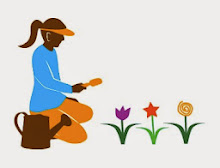"Etiquette means behaving yourself a little better than is absolutely essential." - Will Cuppy
Nowadays, it's hard to tell. Teachers and other adults encourage our children to address them by their first names, thank-you notes are now "optional", and "Good" has become a perfectly acceptable response to the query, "How are you today?" What is the world coming to? Long gone are the days when a lady was expected to curtsy and wear white gloves in public with gentlemen kissing her delicate hand upon greeting her. Back then, the display of good manners was as much a harbinger of one's status in society as it was a gesture of graciousness. Our interactions have certainly taken on a more casual tone, but the truth is manners do still matter. If we hope to live together with minimal chaos and conflict, we must strive to be polite and respectful in our encounters.
The road to civility is paved with practice, best initiated at an early age. Today, parents struggle with how hard to push the issue of manners when the bounds of civil restraint have been stretched thin in some quarters. Children, on the other hand, wonder "What's the big deal?" The big deal is that manners help us feel comfortable in a variety of situations because they provide a sense of what is expected of us and what we can reasonably expect of others -- we feel prepared. Manners demonstrate a consideration for others. Kind gestures and "service with a smile" really can brighten a person's day and shift his/her perspective. I also like to tell my children, "Manners make you memorable" because, if we are honest with ourselves, good manners can make the difference in getting what we want or need from someone else, now and later.
Let's do our part to secure the future of peace and civility. Here are a few tips on imparting the finer points of good manners to our children:
Show and tell. Teach the behavior up front. If a particular gesture has an interesting origin like saying "God Bless You" when someone sneezes, make it interesting and share the story.
Start at home. Focus initially on everyday activities, then expand the repertoire. You might start with mealtime behavior, handling telephone calls, interacting with friends and siblings during play time, encounters with adults during errands and activities (salespersons, coaches/instructors, friends' parents, etc.), asking for permission, cleaning up after ourselves, and of course, saying "please" and "thank you". Don't forget to cover the art of sincere apology and making amends for mistakes and mishaps.
Practice. Practice. Role-play to help your children sharpen their skills for everyday situations and incorporate unique scenarios that you anticipate in the near future. Examples might be sleepovers, parties, fancy meals, and concerts/performances.
Be consistent. As with other family conventions, uphold the practice of good manners regularly. Remember -- manners aren't just for use with strangers and special guests.
Be patient. Offer gentle reminders that don't embarrass your child in front of others.
Expect to revisit this area frequently because, as our children grow, an increasing sense of awareness and consideration of others will be expected. When we adults model good manners ourselves, we bring this message home to our children in a powerful way. We invite you to take up the challenge -- the courtesy of a reply is greatly appreciated!
~~Carol~~
© 2010 Gardener Parenting Consultants, LLC
Check out this month's recommendations!
Subscribe to:
Post Comments (Atom)


No comments:
Post a Comment